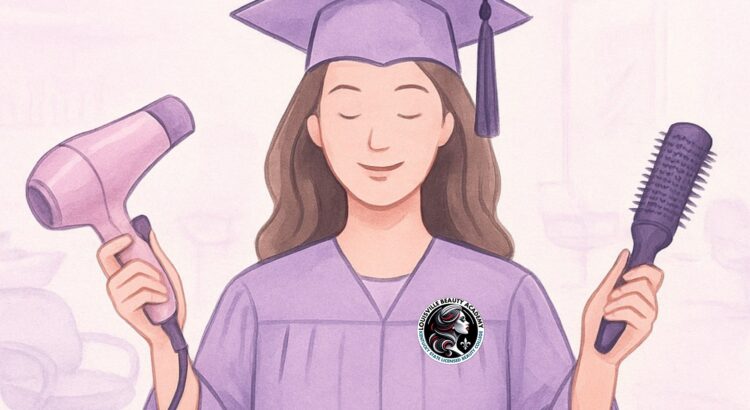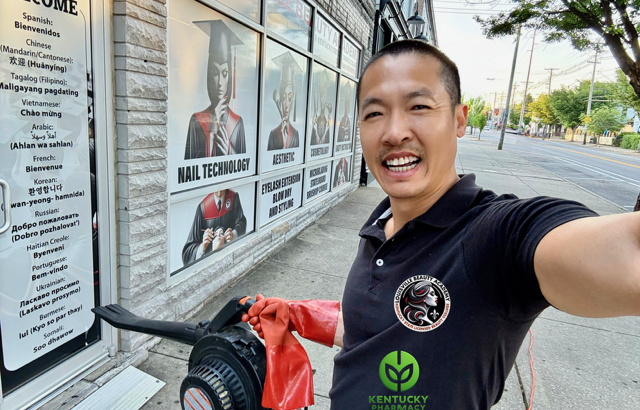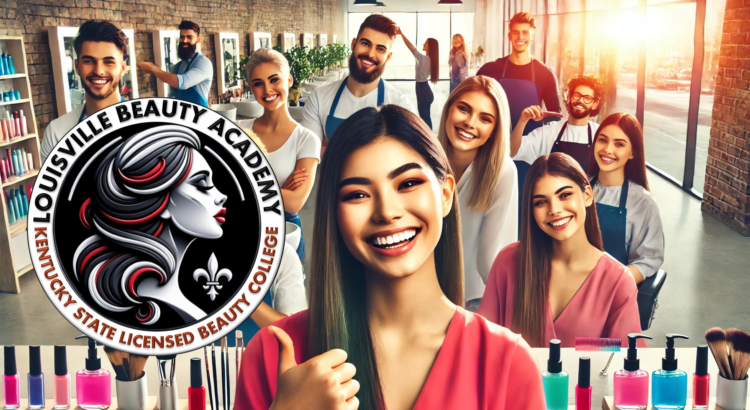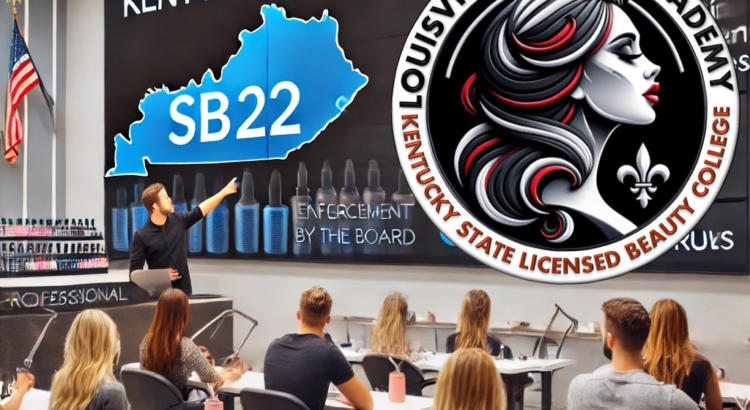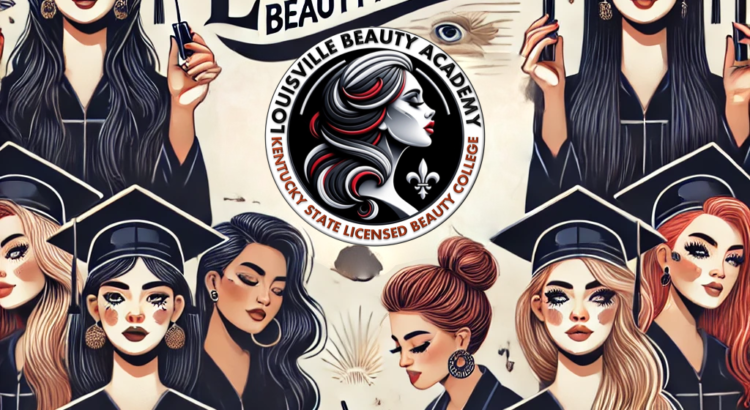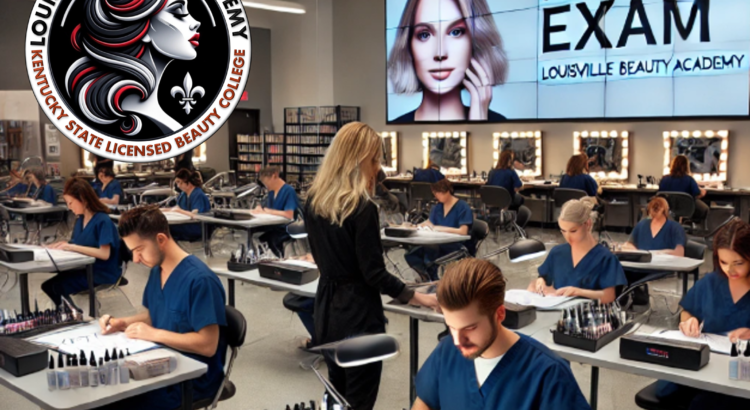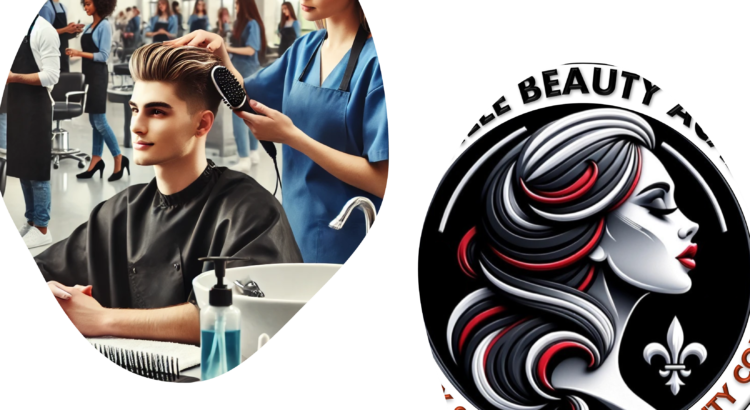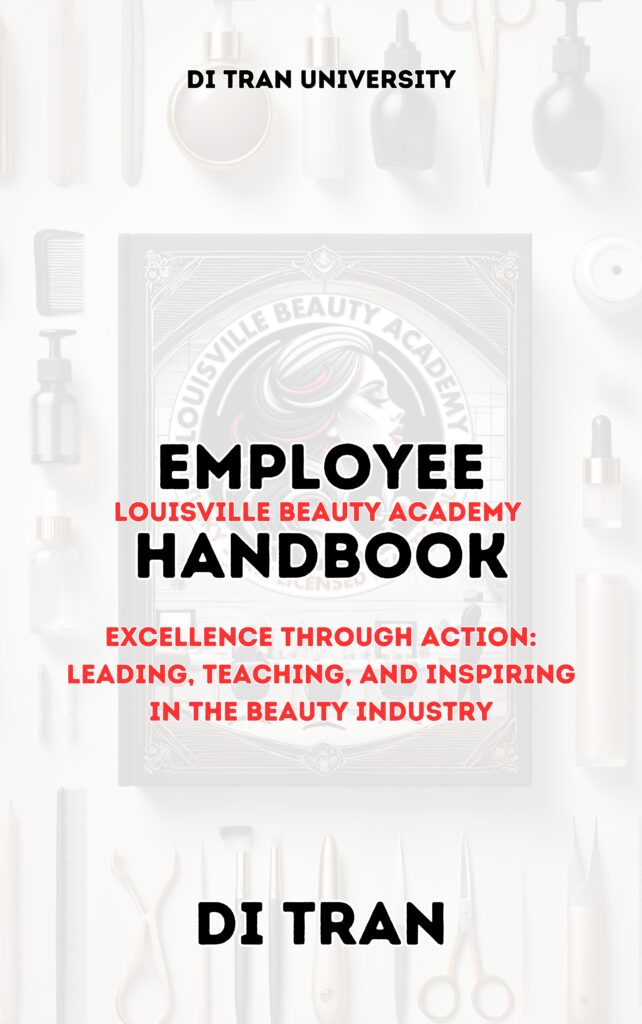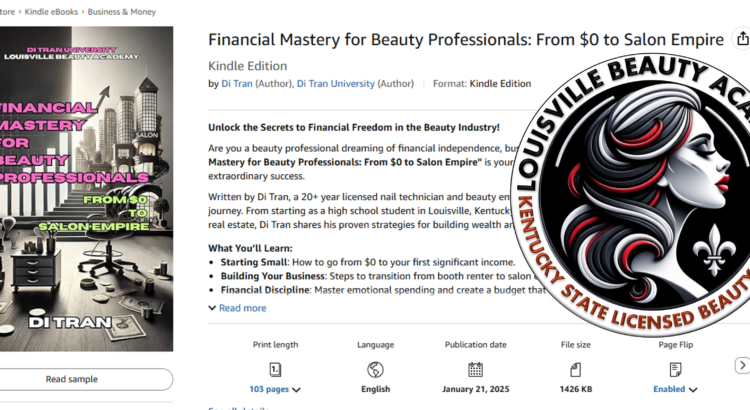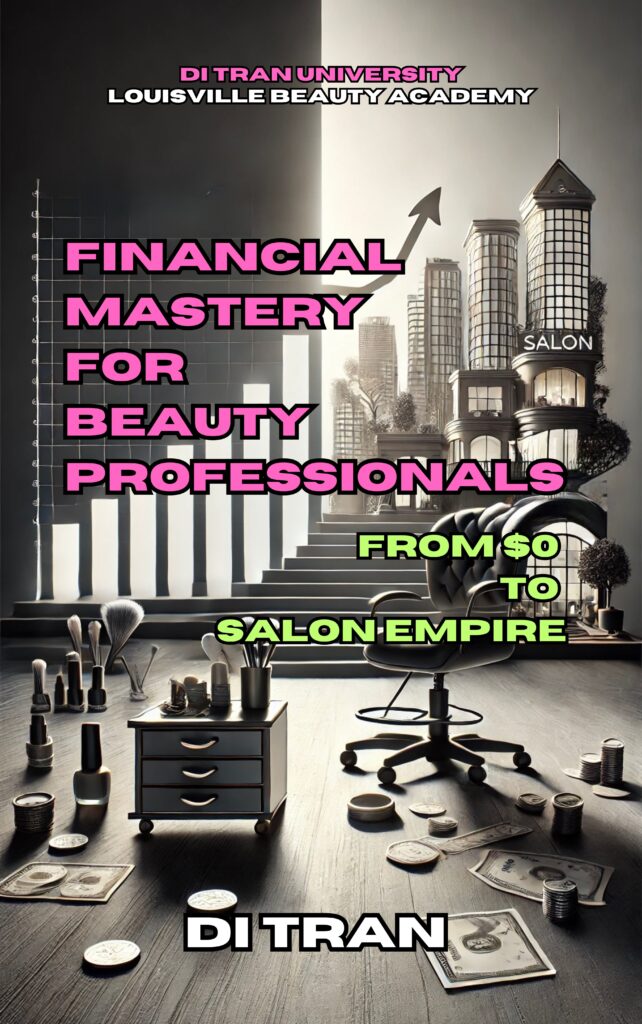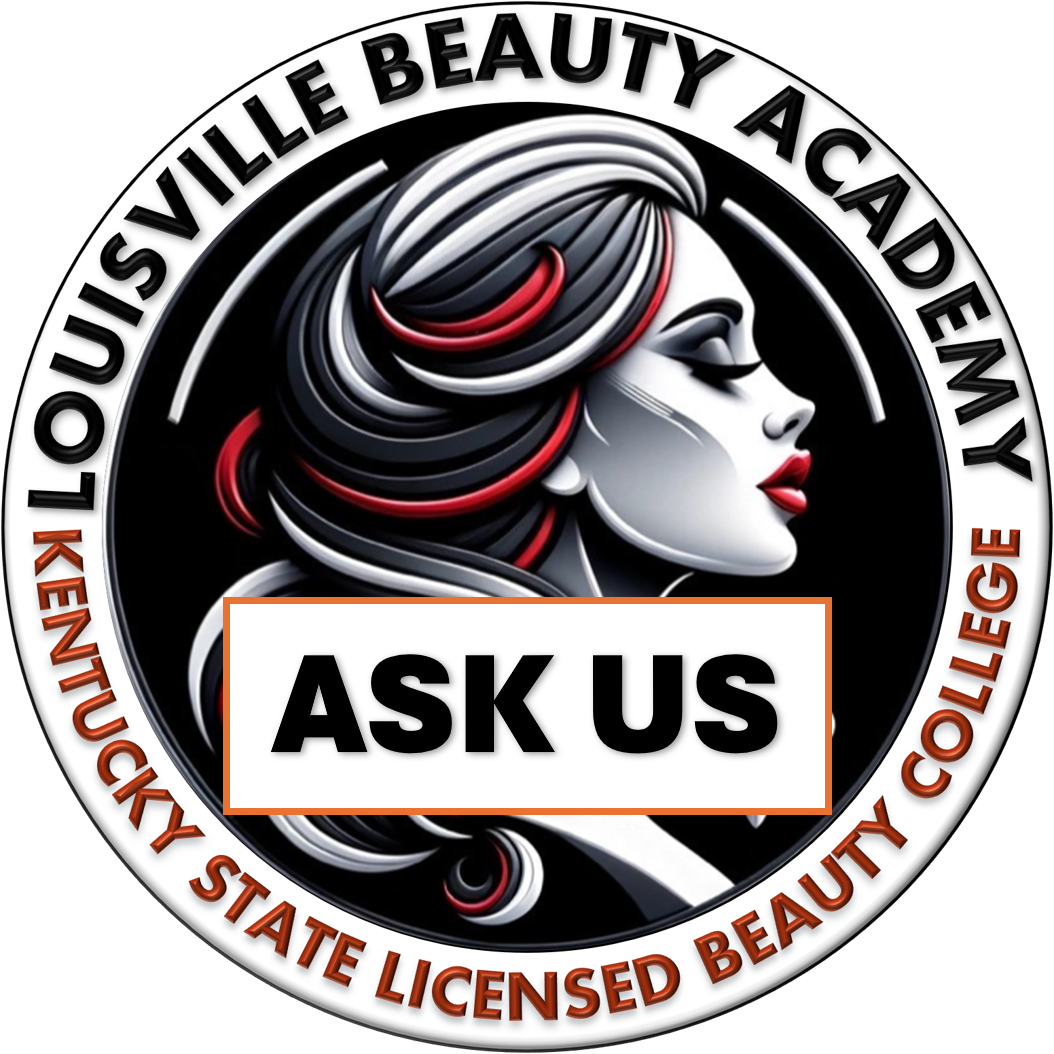Why Read This Book
This is not just another study guide—it’s your complete roadmap to becoming a licensed Shampoo and Styling professional in Kentucky. If you’ve chosen the specialized path of shampooing and styling, you’ve already made a smart, focused career decision. This license is perfect for those who want to build a rewarding future in hair care without the burden of mastering every aspect of full cosmetology.
In a field where many general cosmetology graduates are left unemployed or doing unrelated jobs, this book supports a smarter, more practical path—specialization. Whether your dream is to work in a salon assisting cosmetologists or to open your own Dry Bar–style business, this guide gives you everything you need to confidently pass the Kentucky PSI theory exam and begin working legally and professionally.
Here’s why this book matters:
- 🧠 Focused Study: Covers every topic tested on the Kentucky PSI exam—nothing more, nothing less.
- 🧪 Practice Questions with Explanations: Reinforce your knowledge and understand the “why,” not just the “what.”
- 📘 Student-First Language: Written in clear, easy-to-follow English for real-world learners.
- 💡 Career-Centered Philosophy: Built around the Louisville Beauty Academy belief: train to succeed in life, not just pass a test.
- 🎓 A Smart Investment: 300 hours to licensure means you’re ready for work fast—with a license that allows you to provide real, valued services in salons across the state.
If you’re serious about success and want to take the most efficient path to earning a beauty industry license, this book will help get you there—confidently, clearly, and affordably.
You are not alone—Louisville Beauty Academy is here with you, every step of the way.
Introduction: The Smartest Path in Beauty? Why Choosing a Focused Shampoo & Styling License Over Full Cosmetology Makes Sense in 2025
There’s a popular saying: “Jack of all trades, master of none.” And in the beauty industry, especially today, those words carry weight.
With over 70% of licensed cosmetologists in Kentucky and across the United States reportedly no longer working in the field they trained for, it begs the question: Is more always better? Or is focused better? The answer lies in real-world results — and this book is built on that truth.
In today’s fast-moving world, debt-free, focused, and flexible education isn’t just ideal — it’s essential. At Louisville Beauty Academy, a Kentucky State-Licensed and State-Accredited Beauty College, we’ve seen the pattern again and again: the students who succeed long-term are the ones who choose clarity over confusion, specialty over generality, and a career path that aligns with their real-life goals.
This is why the Shampoo and Styling license, requiring just 300 training hours in Kentucky (as of 2025), may be one of the best-kept secrets in the beauty industry. It’s practical, accessible, and built for success without debt.
Why Shampoo and Styling?
Not everyone dreams of cutting and coloring hair. Not every salon professional wants to be the full-service provider juggling skincare, nails, perms, and more. Many love the feel of the shampoo bowl. Others light up when styling, finishing, and giving clients that final boost of confidence before they walk out the door.
This license is for you.
It’s designed specifically for individuals who:
- Want to specialize in shampooing and styling hair
- Prefer not to pursue the full 1,500-hour cosmetology license
- Are interested in working alongside licensed cosmetologists in traditional salons
- Want to open their own focused salon — like a Dry Bar-style blowout salon
- Are passionate about customer service, consistency, and artistry in styling
- Are looking for a fast-track license that gets them into the workforce with minimal delay
This is not a license for shortcuts. It’s a precision-focused license for professionals with a purpose.
And it may be the smartest decision you make in your beauty career.
Understanding the 300-Hour License
In Kentucky, the Board of Cosmetology outlines the Shampoo and Styling license as follows:
- 300 total training hours at a state-licensed beauty school
- At least a 12th-grade education or equivalent (GED)
- At least 18 years of age
- Passing score on both the written (theory) and practical PSI licensing exams
- Application and approval by the Kentucky Board of Cosmetology
This license allows the holder to perform shampooing, conditioning, scalp massage, blow-drying, flat-ironing, curling, and other styling services, but does not permit cutting, coloring, or chemical services.
This is perfect for salons seeking reliable styling specialists, particularly high-volume businesses, walk-in blowout chains, and spas with dedicated shampoo stations. It’s also a great path for those interested in starting small businesses, offering styling-only services or mobile hair styling.
And unlike cosmetology, which can take 9–12 months to complete (or longer for part-time students), this can be completed in a matter of months with dedicated focus — allowing for rapid job entry.
Avoiding the Cosmetology Trap
Cosmetology, while a powerful license, is often misunderstood and misused.
It’s common for students to enroll in cosmetology school without fully understanding what they’re committing to:
- A 1,500-hour training requirement (which can take over a year)
- A curriculum that includes nails, skincare, hair cutting, chemical services, and more — even if the student only wants to style hair
- High tuition costs, often funded by federal loans (which many spend years trying to pay off)
- Pressure to “do it all,” when they only enjoy doing one part of the work
And the result? Burnout. Student loan debt. Dropping out. Or graduating only to do something else entirely.
At Louisville Beauty Academy, we don’t want that for you.
We guide students toward the license that best fits their real goals, not what’s “popular.” If you want to cut hair, cosmetology may make sense. But if your dream is shampooing, styling, and making people feel beautiful through your hands and your heart, this license gives you everything you need.
Specialization = Sustainability
In any profession, specialization leads to strength. In beauty, it leads to long-term client loyalty, job opportunities, and business ownership.
When you specialize, you become known for one thing — and that’s powerful.
A client may bounce between hairstylists, but they’ll always remember the one who gave the perfect scalp massage, the best blowout, or the person who made them feel truly seen and pampered in your chair.
This license gives you that platform. It allows you to develop excellence in styling techniques, learn the science behind healthy hair care, and build a client base that trusts you for that specific, elevated service.
The Rise of the Dry Bar & Styling Industry
The growth of specialty salons has changed the beauty industry. Dry Bars, Blowout Salons, and Style Studios are booming.
These businesses don’t cut or color — they style. Period.
And guess what?
You don’t need a cosmetology license to work there. You need the Shampoo and Styling license.
This is the license of the future — of lean, clean, profitable business. And it’s the gateway to both employment and entrepreneurship.
Real Students. Real Careers. Real Support.
Louisville Beauty Academy has helped thousands of students across Kentucky and the U.S. earn their licenses and transform their lives.
What makes us different?
- We’re state-licensed and state-accredited
- We focus on practical outcomes, not just graduation
- We do not push federal financial aid or loans
- We offer payment plans and scholarships through NABA
- We treat every student like family
- We care deeply about ethics, safety, and success
We believe in loving guidance, not just instruction. In spiritual and emotional readiness, not just passing a test. We clean our floors together. We pray for our clients. We prepare for excellence.
And we are with you every step of the way.
This Book: A Study Companion for Your Success
This guide is built around the actual PSI theory licensing exam topics and includes:
- Detailed content by chapter
- Over 250 practice questions modeled after the PSI format
- Thorough explanations and rationales for every answer
- Plain English — no academic fluff
- Real-world scenarios and ethical decision-making advice
- Louisville Beauty Academy’s unique perspective on safe, soulful, sustainable practice
It is not just a test-prep guide. It is a pathway to becoming a licensed professional who takes pride in their specialty and care in their service.
You Belong Here
Whether you’re just starting your journey, switching careers, or returning to the beauty industry after years away, this license — and this book — are for you.
You do not need to be “everything to everyone.” You do not need to do it all.
You just need to love what you do and do it well.
And when it comes to shampooing and styling — when it comes to uplifting people through service, energy, and artistry — you already have the heart. We’re here to give you the knowledge and the license.
Welcome to your next step. Welcome to your calling. Welcome to your Shampoo & Styling career.
Now, let’s begin.
Chapter 1: Infection Control & Safety for Shampoo and Styling Professionals
Infection control is the cornerstone of professional safety in any personal care service. For shampoo and styling professionals, this principle becomes even more vital due to the close physical contact with clients and the shared use of tools, shampoo bowls, towels, and chairs. A safe salon is not only a clean one—it’s one where professionals understand and apply the principles of sanitation, disinfection, and sterilization to protect themselves and every client they serve.
Key Concepts Covered in This Chapter:
- Sanitation, Disinfection, and Sterilization
- Bloodborne Pathogens and Exposure Control
- Personal Protective Equipment (PPE)
- OSHA Regulations
- Safety Data Sheets (SDS)
- Safe Work Practices in a Shampoo/Styling Setting
Sanitation, Disinfection, and Sterilization: Know the Difference
Sanitation is the lowest level of decontamination and reduces the number of pathogens on surfaces. It’s what we do daily: wiping down chairs, washing towels, and cleaning shampoo bowls with soap and water.
Disinfection is a higher level of decontamination that destroys most bacteria and viruses on nonporous surfaces using EPA-registered disinfectants.
Sterilization is the highest level of decontamination, killing all forms of microbial life. This process is not typically required for shampoo and styling services but is essential for invasive procedures.
Real-World Example: After every client, the shampoo bowl and chair must be sanitized, and combs and brushes must be disinfected with a proper EPA-approved disinfectant.
Bloodborne Pathogens & Exposure Protocols
Bloodborne pathogens like HIV and Hepatitis B can be transmitted through cuts or exposure to bodily fluids. While shampooing and styling are non-invasive services, minor scalp conditions or accidental scratches can still pose a risk.
If an exposure incident occurs:
- Stop the service immediately.
- Put on gloves.
- Clean the area with antiseptic.
- Apply a bandage if needed.
- Disinfect tools and work areas.
- Fill out an exposure incident form.
Personal Protective Equipment (PPE)
Shampoo and styling professionals must use PPE where necessary. This includes:
- Gloves when handling chemical shampoos or when there’s a risk of contact with blood or bodily fluids.
- Aprons or capes to protect both the client and the stylist.
- Safety goggles when mixing any styling products that could splash.
OSHA Regulations You Should Know
OSHA (Occupational Safety and Health Administration) sets standards that protect salon workers. Key OSHA elements include:
- Ensuring access to SDS for every chemical product used.
- Training on handling hazardous materials.
- Providing PPE to employees.
Safety Data Sheets (SDS)
SDS sheets are required for all chemical products (like shampoos, conditioners, sprays, or styling agents). They provide information about:
- Product ingredients
- Safe use instructions
- First-aid measures
- Storage requirements
- Handling and disposal
Tip for exam: Always remember that SDS must be readily available to staff at all times—not locked away or at home.
Safe Work Practices in Shampoo and Styling
- Wash hands before and after every client.
- Use clean towels for each individual.
- Never double-dip into a product jar.
- Disinfect shampoo chairs, bowls, and tools after every use.
- Maintain clear walkways to avoid tripping hazards.
- Store sharp or hot tools safely away from water sources.
PSI-Style Questions & Answers:
Q1: What is the correct order of decontamination from lowest to highest level?
A. Disinfection → Sanitation → Sterilization
B. Sanitation → Disinfection → Sterilization
C. Sterilization → Disinfection → Sanitation
D. Sanitation → Sterilization → Disinfection
Answer: B
Explanation: Sanitation removes surface debris, disinfection kills most pathogens, and sterilization eliminates all microbial life.
Q2: Which of the following is required on every chemical product used in the salon?
A. Label with price
B. Safety Data Sheet
C. Warranty Sheet
D. Barcode
Answer: B
Explanation: The SDS provides vital safety, handling, and emergency information for all salon chemical products.
Q3: What should you do immediately after a client bleeds during a shampoo service?
A. Finish the shampoo, then clean it
B. Ignore it unless they complain
C. Stop the service, glove up, disinfect
D. Apply shampoo over the cut
Answer: C
Explanation: OSHA standards require immediate action for any exposure incident to protect both parties.
Q4: What is NOT considered PPE in a salon?
A. Gloves
B. Apron
C. Earrings
D. Safety goggles
Answer: C
Explanation: Earrings are not protective equipment—they are personal accessories.
Q5: How often should towels be washed in a professional shampoo setting?
A. Once a day
B. After three clients
C. After each client
D. Weekly
Answer: C
Explanation: Towels must be washed after each client to meet sanitation standards.
Q6: Who mandates the SDS requirement in salons?
A. State Board of Cosmetology
B. OSHA
C. FDA
D. EPA
Answer: B
Explanation: OSHA requires that all employees have access to SDS documents to ensure safe chemical handling.
Q7: When should you clean the shampoo bowl?
A. Every morning
B. After each client
C. Every two hours
D. Before the first client only
Answer: B
Explanation: Shampoo bowls should be sanitized between each client to prevent contamination and uphold hygiene.
Chapter 2: Hair and Scalp Structure & Conditions
A professional in shampoo and styling must understand the structure and health of both the hair and the scalp. This knowledge allows for proper client assessment, accurate product selection, and safe, effective service delivery. Whether working in a traditional salon, a blow-dry bar, or operating independently, your ability to recognize and respond to different hair and scalp types is essential to client satisfaction and long-term career success.
Key Concepts in This Chapter:
- Anatomy of the hair and scalp
- Hair growth cycles
- Hair texture, porosity, and elasticity
- Common scalp and hair conditions
- Consultation and analysis techniques
Basic Anatomy of Hair
Hair is composed of a protein called keratin, and each strand grows from a structure in the dermis called a follicle. Each hair has three main layers:
- Cuticle – the outermost layer, protecting the inner layers
- Cortex – gives hair its strength, color, and texture
- Medulla – the innermost core (may be absent in fine hair)
Hair growth is connected to the arrector pili muscle (causing goosebumps) and is nourished by the dermal papilla.
Hair Growth Cycles
There are three main phases of hair growth:
- Anagen (growth phase) – lasts 2 to 6 years
- Catagen (transition phase) – short, 1–2 week phase
- Telogen (resting phase) – hair falls out and new growth begins
Understanding these helps explain normal hair shedding vs. abnormal loss.
Hair Texture, Porosity & Elasticity
- Texture: refers to the diameter of hair (fine, medium, coarse)
- Porosity: how well hair absorbs moisture. Can be low (resistant), normal, or high (overly porous/damaged)
- Elasticity: the ability to stretch and return without breaking—healthy hair has good elasticity
Stylist Tip: Always assess porosity before applying heat or product. Overly porous hair needs gentler handling and conditioning.
Scalp Conditions to Recognize
- Dandruff (pityriasis) – flaky, dry scalp
- Seborrheic dermatitis – oily, inflamed scalp
- Psoriasis – scaly, red patches that may bleed
- Tinea capitis – fungal infection, should not be serviced
- Pediculosis capitis (lice) – must stop service and refer out
Note: Never perform services on broken skin, active infection, or when lice are present.
Client Consultation
A visual and tactile analysis of the scalp and hair before starting service includes:
- Asking about recent chemical treatments
- Looking for signs of irritation or sensitivity
- Feeling for texture and elasticity
- Asking about products used at home
Document findings and adapt your service to meet individual needs.
PSI-Style Questions & Answers:
Q1: What is the protein that hair is primarily made of?
A. Collagen
B. Elastin
C. Keratin
D. Sebum
Answer: C
Explanation: Keratin is the tough protein that forms the structure of hair, skin, and nails.
Q2: What is the outermost protective layer of the hair shaft?
A. Cortex
B. Cuticle
C. Medulla
D. Papilla
Answer: B
Explanation: The cuticle shields the inner layers of hair and affects shine and manageability.
Q3: What phase of hair growth is the longest?
A. Catagen
B. Telogen
C. Anagen
D. Resting
Answer: C
Explanation: The anagen phase is the active growth phase, lasting several years.
Q4: What term describes how much moisture the hair can absorb?
A. Elasticity
B. Texture
C. Porosity
D. Density
Answer: C
Explanation: Porosity determines how much moisture and product the hair can retain.
Q5: Which condition is considered contagious and must not be serviced?
A. Dandruff
B. Psoriasis
C. Tinea capitis
D. Seborrheic dermatitis
Answer: C
Explanation: Tinea capitis (ringworm of the scalp) is a fungal infection and is highly contagious.
Q6: What is the purpose of a pre-service scalp and hair analysis?
A. To determine if the hair needs a haircut
B. To choose the most expensive product
C. To ensure the service is safe and appropriate
D. To avoid client consultation
Answer: C
Explanation: Proper analysis protects both the client and stylist, ensuring the right services are performed safely.
Q7: If a client presents with lice, what is the appropriate action?
A. Apply tea tree oil and continue
B. Continue with a quick shampoo
C. Use gloves and proceed with caution
D. Refuse service and refer to a medical professional
Answer: D
Explanation: Pediculosis (lice) requires immediate discontinuation of service and referral to a doctor.
Chapter 3: Shampoo Techniques & Scalp Massage
Shampooing is not just about cleansing—it is a vital service that sets the tone for a client’s entire salon experience. Proper shampooing and scalp massage techniques demonstrate professionalism, provide client comfort, and ensure healthy hair and scalp conditions. This chapter outlines the correct procedures, water temperature control, product selection, and massage manipulations essential to the shampoo and styling license.
Key Concepts in This Chapter:
- Shampooing purpose and procedure
- Types of shampoo and conditioner
- Water temperature and pressure control
- Scalp massage techniques
- Client safety and comfort
Purpose of Shampooing
Shampooing removes oils, dirt, product buildup, and skin flakes from the scalp and hair. It prepares the hair for styling services and allows for inspection of scalp and hair conditions.
Types of Shampoo
- Clarifying Shampoo – Deep cleanses to remove heavy buildup
- Moisturizing Shampoo – Hydrates dry or damaged hair
- Color-Safe Shampoo – Gentle, sulfate-free, maintains color-treated hair
- Medicated Shampoo – Contains ingredients for scalp conditions like dandruff
- Balancing Shampoo – Ideal for oily hair and scalp
- Dry Shampoo – Powder or spray for waterless cleansing
Stylist Tip: Match shampoo type to the client’s scalp condition, not just hair texture.
Conditioners
- Rinse-Out Conditioner – Light conditioning used after shampooing
- Leave-In Conditioner – Provides ongoing moisture and detangling
- Deep Conditioner or Masque – Penetrates for repair and strength, left on longer
- Protein Conditioner – Repairs damage and adds strength
Shampoo Procedure Overview
- Drape client with waterproof cape and towel
- Seat client comfortably at the shampoo bowl
- Wet hair using water at a comfortable temperature (around body temperature)
- Apply shampoo and emulsify using fingertips (not nails!)
- Massage scalp using rotating or kneading motions
- Rinse thoroughly with consistent pressure
- Apply conditioner (if needed), then rinse again
- Towel dry and proceed with styling
Water Temperature and Pressure
- Always test water on your inner wrist before applying to the client
- Avoid extremes: too hot can burn, too cold is uncomfortable
- Maintain gentle but consistent water pressure
Scalp Massage Movements
- Effleurage – Light stroking
- Petrissage – Kneading motion to stimulate scalp
- Tapotement – Light tapping
- Friction – Deep circular rubbing
- Vibration – Rapid shaking or trembling
Contraindications: Never massage the scalp if the client has:
- Inflammation
- Infectious diseases
- Recent surgery or injury
PSI-Style Questions & Answers:
Q1: What is the most appropriate shampoo for a client with product buildup?
A. Moisturizing shampoo
B. Clarifying shampoo
C. Medicated shampoo
D. Leave-in conditioner
Answer: B
Explanation: Clarifying shampoo is specifically formulated to deep clean and remove heavy residue.
Q2: What massage movement is characterized by deep circular rubbing?
A. Effleurage
B. Friction
C. Petrissage
D. Vibration
Answer: B
Explanation: Friction involves deep rubbing in a circular motion, often used to increase circulation.
Q3: Before applying water to a client’s hair, you should:
A. Ask the client what temperature they prefer
B. Test the water on your own wrist
C. Use cold water only
D. Spray it directly on the scalp
Answer: B
Explanation: Testing water on your inner wrist ensures client safety and comfort.
Q4: What is a contraindication for scalp massage?
A. Dry scalp
B. Straight hair
C. Inflamed or infected scalp
D. Oily hair
Answer: C
Explanation: Scalp massage should be avoided if there are signs of infection or inflammation.
Q5: What shampoo type should you use for a client with dandruff?
A. Balancing shampoo
B. Clarifying shampoo
C. Medicated shampoo
D. Dry shampoo
Answer: C
Explanation: Medicated shampoo contains ingredients that treat scalp conditions like dandruff.
Q6: Which shampoo is best for maintaining color-treated hair?
A. Protein shampoo
B. Clarifying shampoo
C. Color-safe shampoo
D. Deep cleansing shampoo
Answer: C
Explanation: Color-safe shampoos are gentle and sulfate-free to avoid stripping hair color.
Q7: What step should come immediately after applying shampoo to the client’s hair?
A. Rinse immediately
B. Apply conditioner
C. Massage the scalp
D. Towel dry
Answer: C
Explanation: Massaging the scalp with shampoo ensures thorough cleansing and relaxation.
Chapter 4: Styling Tools, Blow-Drying, and Finishing Techniques
Once hair is clean and conditioned, the next step is styling. Styling is where your creativity shines—but it’s also where technical mastery of tools and techniques is vital. This chapter covers the proper use of blow dryers, brushes, thermal styling tools, product application, and how to achieve desired looks safely and professionally.
Key Concepts in This Chapter:
- Types of styling tools and their uses
- Blow-dry techniques and sectioning
- Heat protection and product usage
- Finishing techniques (volume, curls, sleek styles)
- Client communication and expectations
Common Styling Tools
- Blow Dryer – Used to remove moisture and shape styles
- Round Brush – Adds volume or curl while blow drying
- Paddle Brush – Smooths long, straight hair
- Denman Brush – Ideal for smoothing and blowouts
- Thermal Curling Iron – Creates curls or waves
- Flat Iron – Straightens or flips hair
- Crimping Iron – Adds texture
- Diffuser – Preserves curl pattern while drying
Safety Tip: Always test thermal tools on a paper towel or your hand (briefly) before applying to the client’s hair.
Blow-Drying Techniques
- Towel blot excess water before applying heat
- Apply heat protectant to prevent damage
- Section hair (typically four quadrants) for even drying
- Direct airflow from roots to ends to prevent frizz
- Use nozzle attachments to concentrate airflow
- Finish with cool shot to lock in style and shine
Thermal Styling Basics
- Curling iron sizes determine curl tightness (smaller = tighter)
- Flat irons must be clean and used with heat protection
- Overuse of heat can cause breakage or split ends
Finishing Techniques
- Backcombing/Teasing – Creates volume at the root
- Pomades/Serums – Adds shine and control
- Texturizing Sprays – Adds grit and volume
- Hairspray – Holds style in place
- Edge control products – Smooth baby hairs and hairline
Client Communication
- Ask about desired style and lifestyle habits
- Recommend heat-free options if hair is damaged
- Explain product choices and educate on home care
PSI-Style Questions & Answers:
Q1: What tool is best for creating volume while blow-drying?
A. Flat iron
B. Paddle brush
C. Round brush
D. Diffuser
Answer: C
Explanation: A round brush lifts hair at the roots and shapes volume as it dries.
Q2: Before blow drying, what should you apply to protect hair from damage?
A. Hair spray
B. Leave-in conditioner
C. Heat protectant
D. Pomade
Answer: C
Explanation: Heat protectant acts as a barrier, reducing damage from thermal tools.
Q3: Why should you section hair before styling or blow-drying?
A. To make the process faster
B. To ensure even and controlled styling
C. To prevent hair from tangling
D. To dry only the ends first
Answer: B
Explanation: Sectioning ensures that all areas are treated evenly and safely.
Q4: What styling tool adds texture by creating a zig-zag pattern?
A. Diffuser
B. Crimping iron
C. Curling iron
D. Flat iron
Answer: B
Explanation: Crimping irons create defined, textured zig-zag patterns in the hair.
Q5: When using a blow dryer, which direction should you aim the airflow?
A. From ends to roots
B. Side to side
C. From roots to ends
D. Straight up
Answer: C
Explanation: Drying from roots to ends helps smooth the hair cuticle and reduce frizz.
Q6: What is the purpose of the cool shot on a blow dryer?
A. To make the dryer more powerful
B. To dry hair faster
C. To lock in the finished style
D. To add heat to wet hair
Answer: C
Explanation: Cool air helps set the style and add shine.
Q7: Which product helps reduce frizz and adds shine after styling?
A. Texturizing spray
B. Pomade or serum
C. Mousse
D. Dry shampoo
Answer: B
Explanation: Pomades and serums smooth the hair and give it a glossy finish.
Q8: What safety measure should be taken when using thermal styling tools?
A. Leave them on during lunch
B. Test the heat before use
C. Use without product
D. Let them touch the scalp
Answer: B
Explanation: Always test the tool on a towel or your hand to ensure it’s not too hot.
Q9: When should you recommend a heat-free styling method?
A. Always
B. When the client has oily hair
C. When hair shows signs of damage
D. When styling for short hair
Answer: C
Explanation: Heat can worsen damaged hair, so heat-free options are safer.
Chapter 5: Hair Analysis and Scalp Conditions
Before styling begins, a professional must analyze the hair and scalp. This determines what products, tools, and techniques are safe and effective for the client. Poor analysis can lead to damage or poor results—so this step is essential.
Key Concepts in This Chapter:
- Hair types and textures (straight, wavy, curly, coily)
- Hair density, porosity, and elasticity
- Scalp conditions (dandruff, psoriasis, lice, fungal infections)
- Contraindications for shampooing and styling
- Professional and ethical response to scalp disorders
Hair Analysis Factors
- Texture – Thickness of the individual hair strand (fine, medium, coarse)
- Density – Number of strands on the scalp (low, medium, high)
- Porosity – Hair’s ability to absorb moisture
- Low porosity = resistant to moisture
- High porosity = absorbs quickly, but can dry fast
- Elasticity – Hair’s ability to stretch and return without breaking
- Indicates strength and health
Scalp Conditions to Watch For
- Dandruff (Pityriasis) – Flaky, itchy scalp; may be dry or oily
- Psoriasis – Chronic skin condition; thick, silvery scales
- Tinea Capitis (Ringworm) – Fungal infection; scaly patches, possible hair loss
- Pediculosis Capitis (Head lice) – Contagious parasite; itching and visible nits
- Seborrheic Dermatitis – Severe oily dandruff with redness and odor
Important: Never provide shampoo or styling services to clients with infectious scalp disorders. Refer them to a medical professional and document the issue.
Client Consultation Tips
- Ask about their scalp and hair history
- Gently inspect the scalp under light
- Discuss their at-home care routine
- Make notes for recurring visits
PSI-Style Questions & Answers
Q1: What is hair porosity?
A. The number of hair strands on the scalp
B. The hair’s ability to stretch and return
C. The scalp’s oil production
D. The hair’s ability to absorb moisture
Answer: D
Explanation: Porosity tells how much moisture the hair can absorb. High porosity means damaged or open cuticle layers.
Q2: A client with itchy, flaky white or yellow scales on the scalp most likely has:
A. Ringworm
B. Pediculosis Capitis
C. Psoriasis
D. Dandruff
Answer: D
Explanation: Dandruff is the most common cause of flakes and itchiness and can be dry or oily in nature.
Q3: Which condition is highly contagious and must not be serviced?
A. Dandruff
B. Psoriasis
C. Pediculosis Capitis
D. Dry scalp
Answer: C
Explanation: Head lice (Pediculosis Capitis) is contagious, and services must be denied.
Q4: Hair elasticity measures the hair’s:
A. Thickness
B. Ability to absorb color
C. Strength and stretch
D. Texture
Answer: C
Explanation: Elasticity determines the hair’s flexibility and strength before breaking.
Q5: What scalp condition involves red, thickened patches with silvery-white scales?
A. Tinea
B. Psoriasis
C. Seborrhea
D. Lice
Answer: B
Explanation: Psoriasis is a non-contagious, chronic skin condition with silvery scales.
Q6: When should a stylist refuse to provide a shampoo or style service?
A. When the client has curly hair
B. When the client has a contagious condition
C. When the client has dandruff
D. When the hair is short
Answer: B
Explanation: Contagious scalp disorders (e.g., lice, ringworm) require medical attention and must not be serviced.
Q7: A client with hair that resists moisture likely has:
A. High porosity
B. Low elasticity
C. High density
D. Low porosity
Answer: D
Explanation: Low porosity means the cuticle is tightly packed, making it resistant to moisture and product absorption.
Q8: What is the best way to assess hair density?
A. Examine the hairline
B. Ask the client
C. Part the hair and visually inspect the scalp
D. Stretch the hair strand
Answer: C
Explanation: Parting the hair and examining the scalp gives a clear view of how many strands grow per square inch.
Q9: Which condition presents with circular bald patches, scaly skin, and is caused by a fungus?
A. Lice
B. Psoriasis
C. Tinea Capitis
D. Seborrheic Dermatitis
Answer: C
Explanation: Ringworm of the scalp (Tinea Capitis) is a fungal infection causing bald spots and flaking.
Chapter 6: Shampoo Chemistry and Water Types
This chapter explores the chemical components in shampoos, water types, and how they impact hair and scalp health. Understanding ingredients helps stylists make safe and effective product choices tailored to each client.
Core Concepts Covered:
- Types of shampoo (clarifying, moisturizing, medicated, color-safe, sulfate-free, etc.)
- pH and its effect on the hair and scalp
- Hard water vs. soft water
- Shampoo ingredients: surfactants, conditioners, humectants, and additives
- Product safety and client-specific recommendations
Understanding pH in Shampoo
- Hair and scalp have a natural pH of 4.5 to 5.5
- Acidic pH closes the cuticle, adds shine, and maintains strength
- Alkaline pH opens the cuticle—useful for deep cleansing but may dry or damage hair
Shampoo Types
| Type | Purpose |
| Clarifying | Removes buildup, ideal before chemical services |
| Moisturizing | Adds hydration, good for dry or curly hair |
| Medicated | Treats scalp conditions like dandruff or psoriasis |
| Sulfate-Free | Gentler cleansing, best for color-treated or sensitive scalp |
| Color-Safe | Maintains hair dye, prevents fading |
| Volumizing | Adds body and fullness to fine hair |
Water Types and Hair Impact
- Soft Water – Contains fewer minerals. Creates rich lather. Ideal for shampooing.
- Hard Water – High in calcium/magnesium. Can cause buildup and dullness. Use clarifying shampoos or install filters when needed.
PSI-Style Questions & Answers
Q1: What is the natural pH of hair and scalp?
A. 2.0–3.0
B. 4.5–5.5
C. 6.5–7.5
D. 9.0–10.0
Answer: B
Explanation: Healthy hair and scalp exist in a slightly acidic range, which helps keep the cuticle sealed and the scalp balanced.
Q2: What type of shampoo is best for removing product buildup and mineral deposits?
A. Volumizing
B. Clarifying
C. Moisturizing
D. Color-safe
Answer: B
Explanation: Clarifying shampoos contain stronger surfactants designed to strip away residue and buildup.
Q3: Sulfate-free shampoos are recommended for:
A. Oily hair only
B. Before chemical services
C. Color-treated or sensitive scalps
D. Weekly deep cleanses
Answer: C
Explanation: Sulfate-free formulas are gentler and help retain natural oils and hair color.
Q4: What ingredient allows shampoo to lather and cleanse?
A. Humectant
B. Surfactant
C. Emollient
D. Polymer
Answer: B
Explanation: Surfactants reduce surface tension, allowing oil and dirt to mix with water and rinse away.
Q5: What is a drawback of using shampoo with a high pH?
A. Adds moisture
B. Seals the cuticle
C. Causes the cuticle to open
D. Enhances shine
Answer: C
Explanation: Alkaline shampoos open the hair cuticle, which can lead to dryness or damage if overused.
Q6: Which type of water causes shampoo to lather less and may lead to mineral buildup on the hair?
A. Distilled water
B. Soft water
C. Purified water
D. Hard water
Answer: D
Explanation: Hard water contains minerals that interfere with surfactants and can leave a residue on the hair.
Q7: A client with dry, frizzy hair would benefit most from what type of shampoo?
A. Clarifying
B. Moisturizing
C. Volumizing
D. Protein-enriched
Answer: B
Explanation: Moisturizing shampoos contain emollients and conditioning agents that hydrate and soften hair.
Q8: What is the function of a humectant in shampoo?
A. Prevents color fading
B. Removes buildup
C. Attracts moisture from the air
D. Creates lather
Answer: C
Explanation: Humectants draw moisture from the environment to hydrate hair and improve elasticity.
Q9: A color-treated client should avoid which type of shampoo?
A. Sulfate-free
B. Color-safe
C. Clarifying
D. Moisturizing
Answer: C
Explanation: Clarifying shampoos can strip color from the hair and should be avoided unless absolutely necessary.
Chapter 7: Blow-Drying and Heat Styling Tools
This chapter equips you with knowledge on safe and effective use of heat tools, client protection, and the impact of heat styling on hair texture and integrity.
Core Concepts Covered:
- Types of blow dryers, diffusers, concentrators
- Brush types and styling results (round, paddle, vented)
- Flat irons, curling irons, hot rollers
- Heat settings and hair type matching
- Client safety and scalp protection
- Thermal protectants and damage prevention
Key Tools in Heat Styling
| Tool | Function |
| Blow Dryer | Dries hair while allowing shaping and styling |
| Diffuser | Disperses air evenly, ideal for curls/waves |
| Concentrator Nozzle | Focuses air for precision styling |
| Round Brush | Adds volume, curls, or flips during blow-dry |
| Paddle Brush | Smooths and flattens long, straight styles |
| Vented Brush | Speeds drying, adds volume |
| Flat Iron | Straightens or flips hair using heated plates |
| Curling Iron | Creates curls or waves with cylindrical heat barrel |
| Hot Rollers | Add volume and set curls without manual manipulation |
PSI-Style Questions & Answers
Q1: What tool attachment helps create volume in curly hair while reducing frizz?
A. Concentrator
B. Diffuser
C. Flat iron
D. Vented brush
Answer: B
Explanation: A diffuser softens airflow to maintain natural curl shape and reduce frizz during drying.
Q2: What brush is best for creating volume and curl during blow drying?
A. Paddle brush
B. Round brush
C. Vent brush
D. Teasing brush
Answer: B
Explanation: Round brushes work with blow dryers to lift roots and add curl or bend to hair sections.
Q3: Which styling tool is used to straighten or curl hair using heated plates?
A. Curling wand
B. Blow dryer
C. Flat iron
D. Hot rollers
Answer: C
Explanation: Flat irons use heated plates to alter the shape of the hair strand for straight or wavy looks.
Q4: What is the purpose of a concentrator nozzle on a blow dryer?
A. Reduce temperature
B. Create bouncy curls
C. Direct airflow for controlled styling
D. Diffuse airflow for volume
Answer: C
Explanation: The concentrator narrows the air stream for precise styling, especially on straight styles.
Q5: What should always be applied before using thermal tools on hair?
A. Moisturizer
B. Pomade
C. Thermal protectant
D. Conditioner
Answer: C
Explanation: Heat protectants form a barrier to prevent moisture loss and minimize heat damage.
Q6: Which brush type is best for straightening long, thick hair during blow-drying?
A. Round brush
B. Paddle brush
C. Vent brush
D. Teasing brush
Answer: B
Explanation: Paddle brushes allow control and smoothness for long hair, reducing frizz and flyaways.
Q7: What can result from setting a flat iron too high for fine hair?
A. Increased curl retention
B. Faster straightening
C. Hair damage or breakage
D. More shine
Answer: C
Explanation: High heat on fine or fragile hair can cause cuticle damage, breakage, or burns.
Q8: Which tool is typically used for setting curls with less heat and more longevity?
A. Flat iron
B. Curling wand
C. Hot rollers
D. Blow dryer
Answer: C
Explanation: Hot rollers allow hair to cool in shape, which can result in longer-lasting curls with less damage.
Q9: What brush type speeds drying and adds root lift without curl?
A. Paddle brush
B. Round brush
C. Vent brush
D. Boar bristle brush
Answer: C
Explanation: Vented brushes allow air to pass through quickly, lifting roots without curl manipulation.
Q10: How can you protect a client’s scalp during flat ironing?
A. Increase heat and speed
B. Use a paddle brush
C. Use a heat-resistant comb or barrier
D. Use water spray before ironing
Answer: C
Explanation: Placing a heat-resistant comb between the flat iron and scalp helps prevent burns.
Chapter 8: Client Consultation and Service Preparation
This chapter highlights the importance of pre-service consultations, effective communication, and legal/ethical considerations in preparing for a shampoo and styling service. Proper preparation ensures safety, satisfaction, and professional integrity.
Core Concepts Covered:
- Conducting a thorough client consultation
- Client intake forms and documentation
- Recognizing contraindications (e.g., scalp infections, skin conditions)
- Explaining procedures and setting expectations
- Legal consent and communication skills
- Draping and workstation setup
- Hygiene, etiquette, and client comfort
Why Consultation Matters
A successful shampoo and style service begins with understanding the client’s needs, scalp condition, hair texture, and any limitations or sensitivities. It builds trust, ensures safety, and helps you deliver personalized results.
Common Contraindications to Watch For:
| Condition | Action |
| Open wounds on scalp | Do not perform service; refer to physician |
| Scalp infections (ringworm, lice) | Deny service; recommend medical attention |
| Recent chemical service | Adjust shampoo or product type to avoid irritation |
| Sensitive or allergic scalp | Conduct patch test or choose hypoallergenic products |
PSI-Style Questions & Answers
Q1: What is the first step before performing any shampoo or styling service?
A. Apply shampoo
B. Conduct a client consultation
C. Begin blow-drying
D. Choose styling products
Answer: B
Explanation: The client consultation identifies preferences, concerns, and medical conditions that may affect service.
Q2: A client with an open sore on the scalp should be:
A. Shampooed with medicated shampoo
B. Referred to a physician
C. Covered with a cap
D. Styled immediately
Answer: B
Explanation: Performing services on broken skin or open sores violates safety protocols and can lead to infection.
Q3: What form helps document client allergies, preferences, and hair history?
A. Work order
B. SDS form
C. Client intake form
D. Style release sheet
Answer: C
Explanation: A client intake form is used to document important health and preference information prior to the service.
Q4: During a consultation, the professional should:
A. Focus only on hair length
B. Suggest the most expensive products
C. Listen actively and repeat back key concerns
D. Avoid discussing past hair experiences
Answer: C
Explanation: Active listening and clear communication ensure alignment and build client trust.
Q5: Which of the following is considered a contraindication for shampoo service?
A. Oily scalp
B. Thick hair
C. Tinea capitis (ringworm)
D. Straight hair
Answer: C
Explanation: Ringworm is a contagious fungal infection that requires medical attention before any hair service.
Q6: What is the purpose of draping the client properly before shampooing?
A. To style the hair more easily
B. To protect the client’s skin and clothing
C. To dry the hair faster
D. To make the client sit upright
Answer: B
Explanation: Draping ensures sanitation and client comfort by preventing water or chemical exposure to clothing and skin.
Q7: A client reveals an allergy to coconut-based products. The stylist should:
A. Proceed with usual products
B. Ignore it unless a reaction occurs
C. Use alternate products without coconut derivatives
D. Use shampoo only, not conditioner
Answer: C
Explanation: Always respect allergies and use alternatives to avoid harmful reactions.
Q8: Which of the following is a sign of a professional consultation process?
A. Skipping intake forms
B. Assuming the client’s needs
C. Offering services without explanation
D. Asking questions, analyzing hair/scalp, and confirming understanding
Answer: D
Explanation: A full consultation includes questioning, analysis, clear explanation, and client confirmation.
Q9: Why is it important to maintain client records over time?
A. To reuse old drapes
B. To avoid consultations in the future
C. To track progress and ensure consistency
D. To reduce appointment duration
Answer: C
Explanation: Documented client history ensures services align with expectations and helps monitor changes in hair/scalp health.
Q10: In a dry bar-style business, consultation helps:
A. Upsell more shampoo
B. Quickly choose the trendiest style
C. Understand the client’s occasion, style preference, and time constraints
D. Ignore individual needs and use one-fits-all approach
Answer: C
Explanation: Personalization is key in styling; understanding the client’s schedule and goals ensures satisfaction.
Chapter 9: Product Knowledge and Application Techniques
This chapter helps candidates understand various types of professional haircare products used during shampoo and styling services, including how and when to use them, potential allergic reactions, and proper handling.
Core Concepts Covered:
- Shampoos (clarifying, moisturizing, medicated, etc.)
- Conditioners and treatments
- Styling products (mousse, gel, pomade, heat protectants, etc.)
- Reading and understanding product labels
- Proper product application techniques
- Recognizing allergic reactions
- SDS (Safety Data Sheets) and chemical safety
Why Product Knowledge Matters
Every head of hair is different, and using the right products is critical to protect hair integrity, scalp health, and client satisfaction. Understanding ingredients, functions, and product categories makes you not only a stylist, but a trusted expert.
Common Product Types and Uses
| Product Type | Purpose |
| Clarifying Shampoo | Removes buildup and prepares hair for treatment |
| Moisturizing Conditioner | Restores moisture to dry or chemically-treated hair |
| Protein Treatment | Rebuilds damaged or brittle hair |
| Mousse/Foam | Adds volume and light hold |
| Gel | Provides strong hold and definition |
| Pomade/Wax | Offers texture and shine, especially for short styles |
| Heat Protectant | Shields hair from blow dryer or flat iron damage |
PSI-Style Questions & Answers
Q1: What is the primary purpose of clarifying shampoo?
A. Add shine
B. Strip buildup from products and minerals
C. Moisturize hair
D. Add volume
Answer: B
Explanation: Clarifying shampoo deep cleanses hair to remove buildup that can weigh hair down or interfere with chemical services.
Q2: Which product is best for dry, chemically processed hair?
A. Clarifying shampoo
B. Volumizing mousse
C. Deep moisturizing conditioner
D. Sea salt spray
Answer: C
Explanation: Moisturizing conditioners restore hydration, especially after color, bleach, or relaxer treatments.
Q3: What does a heat protectant do?
A. Makes the hair curl
B. Acts as a dry shampoo
C. Protects hair from heat damage during styling
D. Adds color
Answer: C
Explanation: Heat protectants coat the hair to reduce damage from flat irons, curling irons, and blow dryers.
Q4: Which styling product would you use to define curls with a firm hold?
A. Pomade
B. Mousse
C. Gel
D. Dry shampoo
Answer: C
Explanation: Gel is often used for strong hold and definition, especially for sculpting curls or wet styles.
Q5: If a client reports itching and redness after a product is used, what should you do?
A. Finish the service
B. Wash out the product and stop service
C. Apply more product
D. Ignore the complaint
Answer: B
Explanation: Allergic reactions require immediate attention. Stop using the product and remove it immediately.
Q6: Where can you find safety information and ingredient hazards for products used in the salon?
A. Product website
B. SDS (Safety Data Sheets)
C. Client intake form
D. Magazine ads
Answer: B
Explanation: SDS sheets provide safety, first aid, and chemical composition details required for salon use.
Q7: Which of the following is NOT a styling product?
A. Mousse
B. Protein treatment
C. Pomade
D. Gel
Answer: B
Explanation: Protein treatments are restorative, not styling-focused.
Q8: Why should a stylist avoid applying heavy oils near the scalp before a heat service?
A. It makes the client’s hair smell bad
B. It adds shine
C. It can cause scalp burns
D. It protects the hair
Answer: C
Explanation: Oils near the scalp can heat up excessively and may cause burns when used with heat tools.
Q9: What should you always do before trying a new product on a client?
A. Guess based on smell
B. Mix it with another product
C. Do a patch test or consult with the client
D. Apply a large amount first
Answer: C
Explanation: A patch test or client consultation helps avoid allergic reactions or dissatisfaction.
Q10: What’s the correct way to apply mousse?
A. Directly to the scalp
B. Rub into dry hair roots only
C. Dispense into the palm and distribute evenly on damp hair
D. Mix with conditioner
Answer: C
Explanation: Mousse is most effective when applied evenly through damp hair, especially before blow-drying.
Chapter 10: Finishing Techniques and Client Experience
This final chapter focuses on what elevates a good service to a great one: the finishing touches and the client experience. It includes blow-dry techniques, final product application, consultations, and customer care. It also prepares you to answer PSI exam questions related to professionalism, service completion, and the salon environment.
Core Concepts Covered:
- Blow-dry techniques
- Final product use and placement
- Client consultation and aftercare advice
- Handling complaints professionally
- Maintaining a professional appearance
- Creating a relaxing, safe salon environment
What Finishing Means in Styling Services
The finishing phase isn’t just about aesthetics—it is when clients form their lasting impression. A clean blowout, proper use of serum or spray, and clear client communication all play a role. It’s your moment to shine.
PSI-Style Questions & Answers
Q1: What is a common finishing product used to add shine and reduce frizz?
A. Clarifying shampoo
B. Volumizing mousse
C. Silicone-based serum
D. Hair gel
Answer: C
Explanation: Silicone serums smooth hair and add shine, perfect for finishing polished styles.
Q2: What is the main purpose of a client consultation?
A. To upsell products
B. To understand client expectations and needs
C. To speed up service
D. To avoid asking questions during the service
Answer: B
Explanation: Consultations ensure the stylist understands the client’s preferences, lifestyle, and concerns before starting.
Q3: What should a stylist do if a client is dissatisfied with their style?
A. Ignore them
B. Tell them they are wrong
C. Listen attentively and offer a correction or alternative
D. Argue and stick to the original plan
Answer: C
Explanation: Professionalism includes handling feedback gracefully and seeking a resolution that satisfies the client.
Q4: Which blow-dry technique is best for adding volume at the roots?
A. Blow-drying downward with a paddle brush
B. Using a diffuser
C. Lifting sections upward with a round brush
D. Using only fingers
Answer: C
Explanation: Lifting the hair upward with a round brush while blow-drying helps create root volume.
Q5: What should you offer clients after a shampoo and style service?
A. Your social media page
B. Aftercare tips and product recommendations
C. A discount
D. Their receipt and nothing more
Answer: B
Explanation: Offering aftercare tips helps prolong their results and builds trust in your expertise.
Q6: Which of the following contributes most to a positive client experience?
A. Loud music and fast service
B. Rushed conversation
C. Clean environment and clear communication
D. Avoiding eye contact
Answer: C
Explanation: Cleanliness and respectful interaction contribute greatly to comfort, trust, and repeat visits.
Q7: What is the most appropriate attire for a professional stylist?
A. Casual jeans and t-shirt
B. Formal wear
C. Clean, professional black scrubs or salon uniform
D. Whatever is trending on TikTok
Answer: C
Explanation: Black scrubs or uniforms present professionalism, cleanliness, and consistency for licensing and exam readiness.
Q8: What’s the last thing a stylist should do before considering a service “complete”?
A. Ask for a tip
B. Walk away
C. Check the client’s satisfaction and offer a mirror
D. Start cleaning without comment
Answer: C
Explanation: Checking in and offering the client a mirror gives them a final say and shows professionalism.
Q9: Why is it important to document service details after the client leaves?
A. To gossip about them
B. For marketing purposes
C. To maintain a service history for future visits
D. To share on social media
Answer: C
Explanation: Documentation helps remember preferences and build better long-term service quality.
Q10: What is one way to turn a first-time client into a loyal customer?
A. Offer the cheapest price
B. Focus only on the hairstyle
C. Provide consistent, caring service and results
D. Offer trendy TikTok tips
Answer: C
Explanation: Loyalty is built on trust, consistency, and genuine care—not just trends or pricing.
Closing Notes
Finishing techniques and exceptional client care mark the difference between an average stylist and a sought-after one. They also reflect the values Louisville Beauty Academy upholds—professionalism, quality service, and real-world preparation.
The End
Thank You
“Mastery is not in knowing everything, but in knowing exactly where you shine. Focus, specialize, serve with love—and success will follow you like your shadow.” –
Di Tran
Founder, Di Tran Enterprise
Legal Disclaimer:
This study guide is published by Louisville Beauty Academy, a Kentucky State-Licensed and State-Accredited Beauty College, with the sole intent to educate, inform, and support students preparing for the Kentucky Shampoo & Styling Licensing Exam. While every effort has been made to ensure the accuracy and relevancy of the information provided, this guide does not guarantee licensure, exam passage, or any specific outcomes.
All content is offered as a supplementary learning tool and does not replace official curriculum, state board materials, or instructor-led training. Rules, regulations, and requirements for licensure are subject to change at any time by the Kentucky Board of Cosmetology. Students are encouraged to consult the official KBC website and verified school instructors for the most up-to-date information.
Louisville Beauty Academy proudly maintains a track record of guiding students to success with integrity, personalized care, and expert instruction. This guide is a reflection of that commitment—but should be used responsibly, as part of a holistic learning journey.
